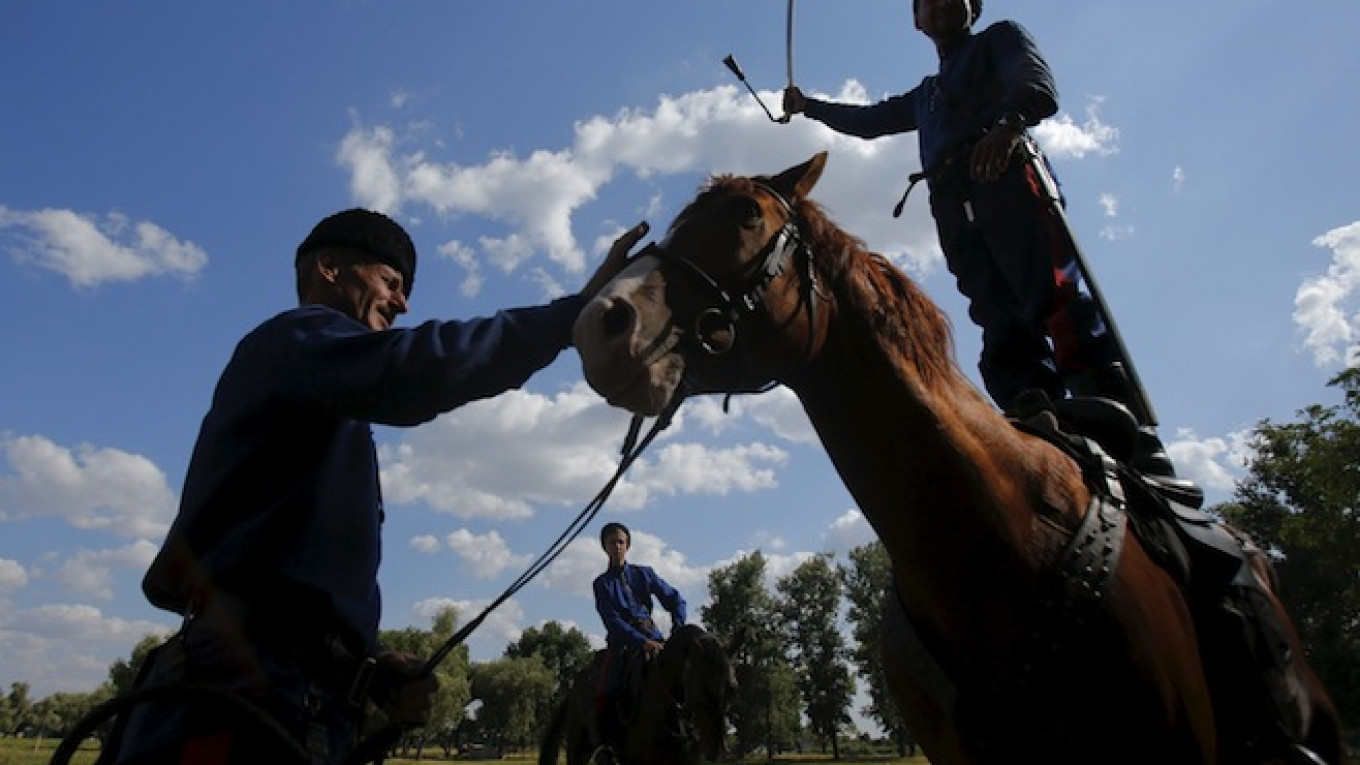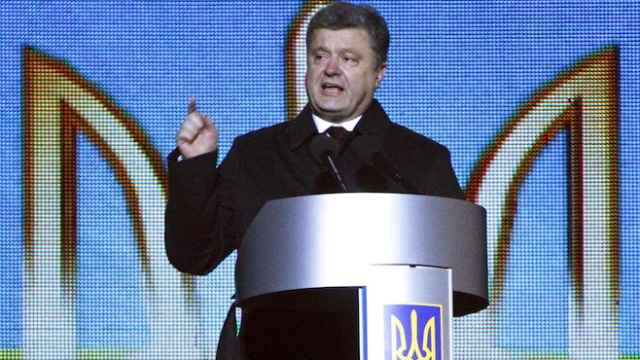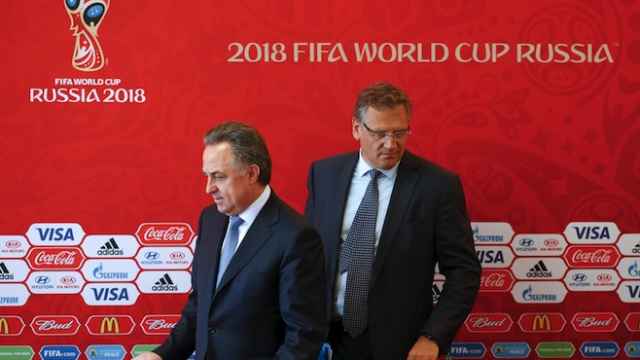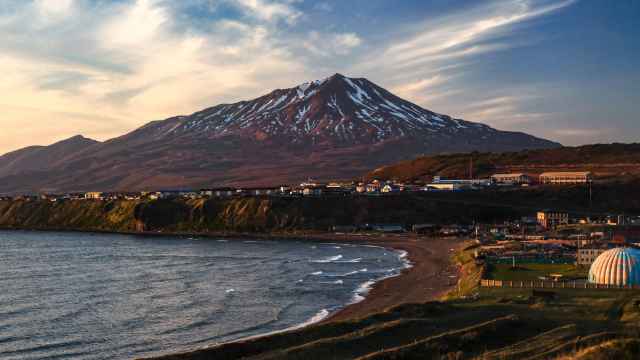The southern Russian city of Rostov-on-Don has more than just a passing interest in peace breaking out in Ukraine as it prepares to host matches in the 2018 World Cup soccer finals.
In addition to building a new stadium, airport, hotels and restaurants, the local and regional authorities have to reassure fans they will be safe in a city that lies little more than 80 km (50 miles) from east Ukraine.
Fighting between pro-Russian separatists and Ukraine's army has eased in the past few months but the conflict is far from over and some analysts expect years of low-level fighting.
None of that deters Vasily Golubev, the governor of the Rostov region, who says the city of more than 1 million people on the long and winding River Don expects to receive about 50,000 foreign visitors during the World Cup finals.
"I am sure that there is still time for this conflict to end in peace before the World Cup," he told reporters on a tour of World Cup venues. "Anyone thinking of coming here will be safe."
Concern in the West about Moscow's role in the conflict in Ukraine and over an investigation into the World Cup bidding process is not expected to see Russia stripped of the event.
President Vladimir Putin has made clear he sees the World Cup as a chance to promote Russia as a modern state and denies there was any wrongdoing in the bidding process.
Security is sure to be tight but Russian officials point out that the Sochi Winter Olympics last year passed off without any major security problems, despite concerns before the Games that attacks might be staged on the Black Sea city.
"The situation in Ukraine will not affect the World Cup in Rostov," said the city mayor, Sergei Gorban. "We are very sorry and feel compassionate about what is happening in Ukraine, but the World Cup in Rostov will be a momentous event in our safe and secure city."
A Long Way to Go
Like most of the 11 cities preparing for the finals, Rostov sees the World Cup as a chance to put itself on the map and attract foreign tourists. Like other host venues, it is also far from ready.
The new 43,000-seat stadium is just a shell, with only the beginnings of its four stands rising from the foundations.
The organizers also plan to redevelop the river bank with new hotels, shops and restaurants. A new airport is being built from scratch outside the city and this is seen as key to developing business in the region.
There was no sign this week of any violence because of the conflict across the border with Ukraine. Soldiers and military vehicles were conspicuously absent, children played on the banks of the Don and people took yoga classes on grass verges.
But Russia has troops stationed near the city, and at times in the past year or so has massed soldiers and weaponry on the nearby border, though it denies Western accusations that it has sent troops to fight in east Ukraine.
It was also to Rostov that former Ukrainian President Viktor Yanukovich came when he was overthrown in Feburary 2014 after street protests against him and his decision not to steer Ukraine towards mainstream Europe.
Rostov does, however, have more than 30,000 Ukrainian refugees living in the city, officials say.
"The Rostov region has a 600 km border with Ukraine and already we have received a lot of displaced people," Golubev said. "We see it as our humanitarian duty to help them."
A Message from The Moscow Times:
Dear readers,
We are facing unprecedented challenges. Russia's Prosecutor General's Office has designated The Moscow Times as an "undesirable" organization, criminalizing our work and putting our staff at risk of prosecution. This follows our earlier unjust labeling as a "foreign agent."
These actions are direct attempts to silence independent journalism in Russia. The authorities claim our work "discredits the decisions of the Russian leadership." We see things differently: we strive to provide accurate, unbiased reporting on Russia.
We, the journalists of The Moscow Times, refuse to be silenced. But to continue our work, we need your help.
Your support, no matter how small, makes a world of difference. If you can, please support us monthly starting from just $2. It's quick to set up, and every contribution makes a significant impact.
By supporting The Moscow Times, you're defending open, independent journalism in the face of repression. Thank you for standing with us.
Remind me later.






